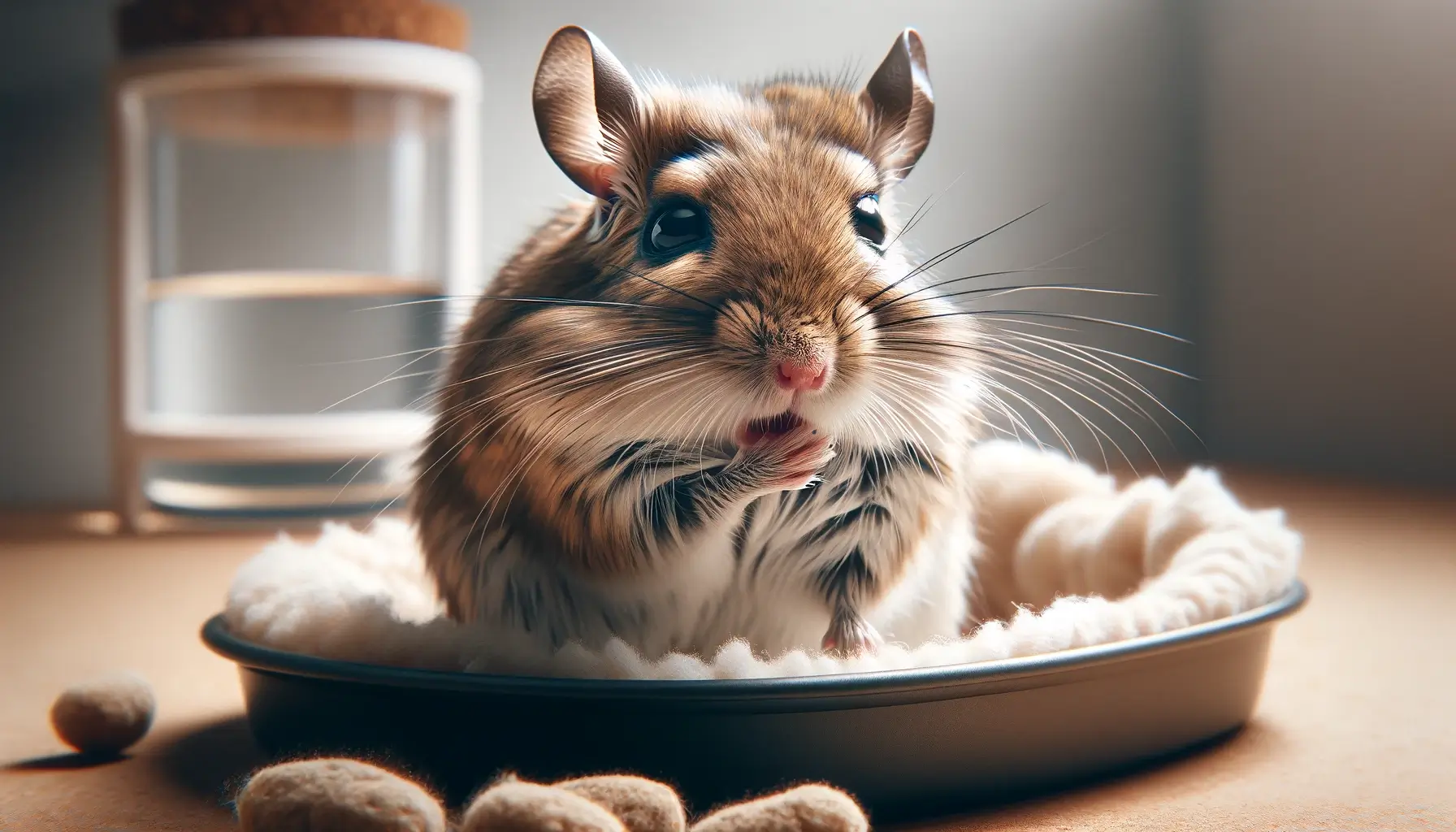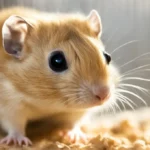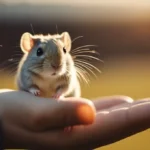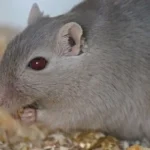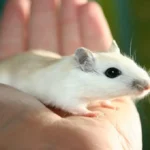Gerbils are charming, energetic pets that bring joy and companionship to their owners. Known for their curious nature and playful antics, these small rodents are generally hardy animals. However, like all living beings, they can encounter health issues, one of which is a stroke.
Understanding what to do if your gerbil has a stroke is crucial for any pet owner, as timely and appropriate care can significantly impact their recovery and quality of life.
Recognizing the Signs of Stroke in Gerbils
Paralysis or Weakness: One of the most alarming signs of a stroke in gerbils is paralysis or noticeable weakness, particularly on one side of their body. This may manifest as difficulty or inability to move their limbs on one side, leading to an unusual posture or difficulty in walking.
Head Tilting and Loss of Balance: A gerbil that has experienced a stroke may display a persistent head tilt to one side. This symptom can be accompanied by a loss of balance, making it hard for them to navigate their environment without stumbling or falling over.
Eye Issues: Stroke may also affect a gerbil’s eyes, making it challenging for them to fully open one or both eyes. This symptom can be particularly distressing to observe, as it significantly affects their ability to interact with their surroundings.
Disorientation and Changes in Behavior: A stroke can lead to disorientation, where a gerbil might appear confused, move in circles, or have difficulty standing upright. These changes in behavior, including a lack of response to stimuli that would normally interest them, are key indicators of neurological distress.
Immediate Actions to Take After Suspecting a Stroke
Prompt Veterinary Care: If you fear your gerbil has had a stroke, the first and most important measure is to seek veterinary care right away. A veterinarian can provide a proper diagnosis and recommend a treatment plan tailored to your gerbil’s specific needs. Early intervention is key to managing the effects of a stroke and improving the chances of recovery.
Providing Supportive Care at Home: Alongside veterinary treatment, providing supportive care at home is essential. This includes creating a safe, quiet, and comfortable environment for your gerbil to recover in. Minimize stress by placing their cage in a calm area of your home, away from loud noises and excessive activity.
Ensure easy access to food and water, as a gerbil recovering from a stroke may have difficulty moving around. Soft foods, such as mashed vegetables or fruits, can be easier for them to eat. Hydration is also crucial, so consider offering water through a dropper if they cannot drink on their own.
Observing your gerbil closely during their recovery period is important to monitor their progress and identify any potential complications early. Regular, gentle interaction can also provide comfort and reassurance to your pet during this challenging time.
Understanding the signs of a stroke and knowing how to respond can make a significant difference in your gerbil’s health and well-being. By providing prompt veterinary care and supportive home care, you can help your gerbil navigate the recovery process and enjoy a fulfilling life post-stroke.
Also read: How to Tell if Your Gerbil is Dying?
Reviving Your Gerbil: Post-Stroke Management and Prevention
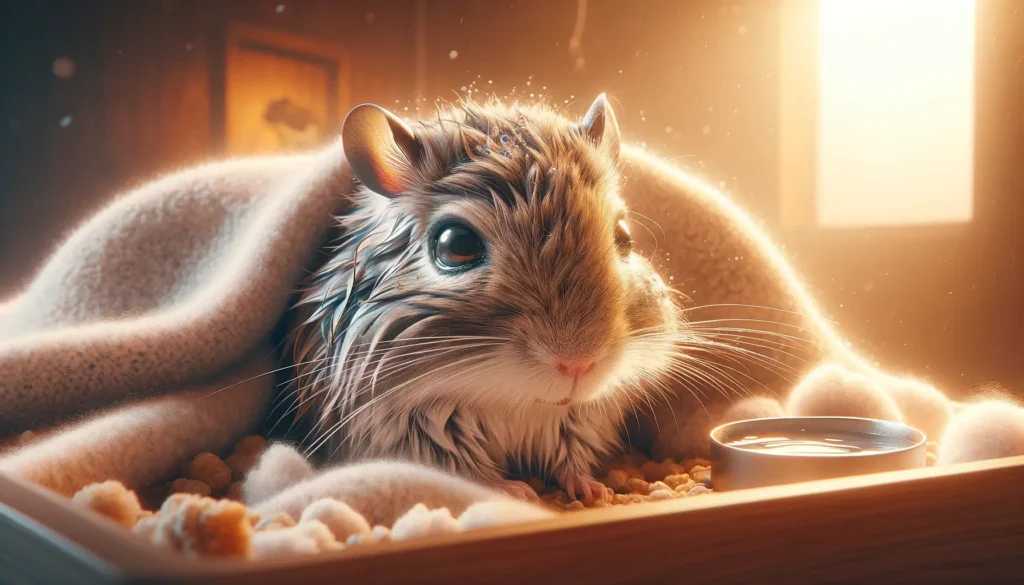
After the initial shock of a stroke, the journey towards recovery for your gerbil begins. With the right care and a lot of love, your furry friend can regain strength and enjoy a happy, active life again. This part of the guide focuses on long-term care and recovery, as well as preventive measures to safeguard your gerbil’s health in the future.
Long-Term Care and Recovery
Creating a Comfortable and Safe Environment: The environment in which your gerbil recovers plays a pivotal role in their rehabilitation. Ensure their living space is quiet, warm, and free from stressors. A comfortable bedding area, easy access to food and water, and the absence of loud noises contribute to a serene recovery space.
Diet and Nutrition for Recovery: Nutrition is key to recovery. A balanced diet rich in vitamins and minerals supports healing and strengthens your gerbil’s overall health. Incorporate a mix of gerbil-specific food, fresh fruits, and vegetables into their diet. Soft foods may still be necessary for gerbils with lingering mobility issues. Consult with your vet to tailor a diet plan that meets your gerbil’s specific nutritional needs during recovery.
Prevention of Stroke and Health Management
Understanding the Causes of Strokes in Gerbils: Knowledge is power when it comes to preventing strokes. Factors such as genetics, age, and underlying health conditions can increase the risk. While you can’t change your gerbil’s genetics, you can mitigate other risk factors through proper care and regular veterinary check-ups.
Tips for Maintaining a Healthy Lifestyle for Your Gerbil: Regular exercise, a balanced diet, and a clean, stimulating environment are foundational to your gerbil’s health. Encourage physical activity with toys and space for exploration. Monitor their diet to prevent obesity, a known risk factor for various health issues, including strokes.
FAQs
Can Gerbils Fully Recover from a Stroke?
Many gerbils can make a significant recovery post-stroke, especially with early intervention and proper care. The extent of recovery varies, with some gerbils regaining full mobility and others experiencing lingering effects.
How Can I Tell if My Gerbil is Having a Stroke or a Seizure?
Strokes and seizures present differently. Strokes often result in one-sided paralysis and mobility issues, while seizures are characterized by convulsions and loss of consciousness. Both conditions require immediate veterinary attention.
What Are the Long-Term Effects of a Stroke on a Gerbil?
The long-term effects depend on the stroke’s severity and the gerbil’s overall health. Some may experience permanent mobility issues or require ongoing supportive care, while others recover with minimal lasting effects.
How Common Are Strokes in Gerbils?
Strokes can occur in gerbils, particularly in older individuals or those with predisposing health conditions. While not every gerbil will experience a stroke, understanding the signs and preventive measures is crucial for all gerbil owners.
Conclusion
In conclusion, while the prospect of your gerbil suffering a stroke can be daunting, understanding the signs and knowing how to respond can make a world of difference. Immediate veterinary care, coupled with a supportive and nurturing home environment, lays the foundation for a successful recovery.
By focusing on proper nutrition, a stress-free living space, and regular health checks, you can help your gerbil regain strength and vitality. Remember, prevention is key, and your attentive care can significantly enhance your gerbil’s quality of life, ensuring they remain a joyful and energetic companion for years to come.

